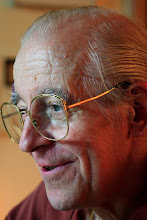Koreans have emphasized ‘equality among people’ since the foundation of their very first country, Kojoson (古朝鮮, 고조선, 2333-108 BC), in 2333 BC. The philosophy of hongik ingan (弘益人間, 홍익인간, universal welfare of mankind)—the national motto of Kojoson—clearly states that one should respect others without any discrimination. This view about equality strengthened and became widespread in the Three Kingdoms Period (三國時代, 삼국시대, 57 BC-668 AD). However, the gap between the ideology of equality and reality widened, due to government workers’ exploitation of commoners and the strict status system. Neo-Confucianism, which dominated commoners’ lives in the Choson Dynasty (朝鮮王朝, 조선왕조, 1392-1910), destroyed the ideology as well. Everyone who lived in Choson in the 16th and 17th centuries had to respect its strict status system and patriarchy, underscored by Neo-Confucianism, the Dynasty’s ideology then. From the 18th century, people started to restore equality with Silhak (實學, 실학) the Confucian social reform movement and Chondoism (天道教, 천도교, Chondogyo) a Choson-originated religion centred on equality among people. Koreans have, undoubtedly, held antipathy toward Japan, due to Japanese annexation (日帝强占期, 일제 강점기, 1910-1945), the exploitation of Choson people and the planned extermination of Koreans’ identities. Japanese culture was despised by Koreans in 1960s and ’70s. Koreans believed that Japan was their most notorious enemy. These days, on the contrary, Koreans do not think that Japan is their terminal enemy. Japan has been spotlighted as Korea’s political, economic and cultural partner. In 1965, the Korean President Park Chung-hee (朴正熙, 박정희, Pak Chong-hui, 1917-1979) accepted Japan’s apology about its colonial exploitation and brought back diplomatic relations with Japan. Japanese music, television dramas and comics become popular in Korea and vice versa. Lee Su-hyon (李秀顯, 이수현, Yi Su-hyon, 1975-2001) a Korean student who was killed trying to save a drunken Japanese man who had fallen onto subway tracks in Shin-Okubo Station (新大久保駅, Shin-Ōkubo-eki), Shinjuku (新宿区, Shinjuku-ku) Tokyo (東京都, Tōkyō-to), makes me feel that Koreans’ respect for equality has been revived. He treated the man as a person, not an enemy, despite the hostility against Japan that many Koreans once had. From Korean education system, Lee must have received a negative view of Japan. As an ordinary Korean, he must have seen Korean hostility to Japan. Some people may have even opposed his decision to study there. Lee, however, had felt that he had something to learn in Japan. Rather than being a hostile country, it could provide something to learn, as Japanese people are also humans. Lee’s death occurred ten years ago but still warms Korean hearts. It proves that Koreans do respect equality as one of the most valuable virtues of human life.
Giorgio Olivotto Seoul, Korea April 10, 2011

Nessun commento:
Posta un commento